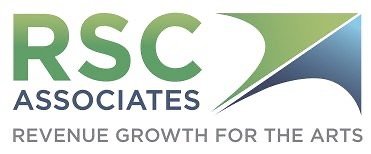A FEW QUOTES TO IRRITATE AND DISCOURAGE
With Bob Swaney
In an earlier post, I shared a few of my favorite quotes—funny, smart, creative sayings that remind us to be our best, do our best, and forge onward.
But, like with all things, there’s another side to this coin. Today, I'm sharing a few of my LEAST favorite sayings — the ones I don’t use and discourage others from using. Get the scoop on when these sayings are used and why they counter good fundraising best practices in the arts.
Read the full transcript below or click the button to listen.
FULL TRANSCRIPT OF THE PODCAST
Hello, arts fundraisers, and welcome back! In an earlier post, I shared a few of my favorite quotes. I like funny, smart, creative sayings — the kind that remind us to be our best, do our best, and forge onward.
But, like with all things, there’s another side to this coin. Today, I’m going share a few of my LEAST favorite such sayings — the ones I don’t use and discourage others from using. I’ll describe the saying, tell you the context, and why I think it’s counter to good fundraising best practices in the arts. Here we go.
We’ve tried that before, and it doesn’t work.
CONTEXT: Usually applied during brainstorming and idea sessions
WHY IT IRRITATES ME: It shuts down idea exploration that can lead to a good solution. It kills creativity, and what could be worse in a creative environment like the arts?
WHAT I WOULD RATHER HEAR: We tried it, and it didn’t work, but maybe something has changed since then.
We need to get to {prospective donor name}.
CONTEXT: Generally, a large-scale campaign setting
WHY IT IRRITATES ME: It ignores relationship-based fundraising and focuses solely on capacity. Also, it obsesses about other people’s money (money we’re not connected to). Finally, there’s no plan on how to “get” that donor. Instead, it sounds like hunting and not fishing, and I prefer fishing!
WHAT I WOULD RATHER HEAR: We need to cultivate {prospective donor name} because {they just gave to the museum, have been seen at our performances, made a recent corporate gift to XYZ}. Let’s lay out the plan.
I can’t ask them for support.
CONTEXT: It usually applies to donors or prospects at $5,000 or more
WHY IT IRRITATES ME: Because often, the Board member KNOWS the prospect. And since we’re in the relationship business, we need connections. “I’m too close to them” rarely makes sense.
WHAT I WOULD RATHER HEAR: I can be a part of this, but I would rather not make the ask. I’m happy to make the introduction and sit in the meeting but not be the solicitor.
We have to wait before asking.
CONTEXT: When preparing for an imminent ask to a large-scale prospect
WHY IT IRRITATES ME: It’s often a baseless assumption, and it’s always easier to look for reasons to delay an ask than to find ways to proceed.
WHAT I WOULD RATHER HEAR: The circumstances need to be right. We may need to wait until (something specific), but in the meantime, we can cultivate / touch base / get a reaction to something.
This isn’t their thing.
CONTEXT: Talking about a prospect who may not be a consumer
WHY IT IRRITATES ME: It assumes too much.
WHAT I WOULD RATHER HEAR: They care more about (different non-profit), so they might give, but right now, it may not be a priority for them. Be open to the idea you might have to work at it!
Donor fatigue is real.
CONTEXT: When a donor has made several gifts to one or several organizations. It’s an easily recognizable name, and so we assume they are getting tired of being asked.
WHY IT IRRITATES ME: I don’t believe in donor fatigue. Why? Because if I believe it, there’s nothing to be done. No action can be taken. Plus, I often say that the donor isn’t tired of giving, but they may be tired of giving to YOU!
WHAT I WOULD RATHER HEAR: We’ve been asking this donor for a lot lately. Let’s develop a stewardship plan and appreciate them for a while before we make any additional asks.
Our Board isn’t a fundraising Board (we have the wrong Board members).
CONTEXT: Generally with a disengaged Board OR a Board that views themselves as primarily administrative watchdogs
WHY IT IRRITATES ME: Again, fundraising is a relationship business. If the Board doesn’t have access to valuable relationships, then who does?
WHAT I WOULD RATHER HEAR: As a Board, we haven’t fully defined our fundraising role, but we would like to help build and maintain valued donor relationships.
We don’t look like we need the money.
CONTEXT: While developing a case or approach to asking
WHY IT IRRITATES ME: Because no arts organization should position its fundraising case on ‘needing the money.’ Doing so makes you look like every other charity, and what arts organization wants to compete with basic human needs?
WHAT I WOULD RATHER HEAR: We want to be strong and valuable so that we can position ourselves as a worthy investment that provides significant payback to the community.
Give or get is a good formula for Board fundraising.
CONTEXT: Setting Board bylaws or expectations about making a gift
WHY IT IRRITATES ME: Because Board members have an overall responsibility for the welfare of the arts organization. Give OR Get is like making a choice to do whichever is easiest.
WHAT I WOULD RATHER HEAR: Why not give AND get? I’m not an advocate of a ‘minimum gift’ and also don’t want to exclude folks from Board service. My motto is, as a Board member you should give the most you can give, and you should encourage others to do the same. It’s how we grow the base of support for the long term.
Businesses don’t give any longer, or Foundations have changed their focus.
CONTEXT: Used when rationalizing why the organization didn’t get an institutional gift it was counting on
WHY IT IRRITATES ME: Just as with “we’ve tried this before,” this one stifles creative thinking. Maybe you can’t secure the $15,000 sponsorship any longer, but perhaps you have a program that is tied to the funder’s refocused funding priorities. Maybe they will no longer give solely for who you are, but perhaps they’ll give for something you specifically do. Don’t give up so quickly.
WHAT I WOULD RATHER HEAR: Let’s do our research to see who they are giving to and then determine if we have a specific program that might attract their funding.
Young people don’t give / old people don’t give.
CONTEXT: A demographic (usually different from mine) doesn’t demonstrate the same affinity for the arts, or there’s a generational barrier that prevents that group from giving.
WHY IT IRRITATES ME: Because it defines entire demographics as non-givers, non-attenders, or non-participants. It is another white flag being waved and a black eye to creativity.
WHAT I WOULD RATHER HEAR: Based on their relationship with us, let’s ask and find out.
All gift amounts are appreciated.
CONTEXT: When someone is trying to meet a challenge grant or at the end of a calendar or fiscal year. This is often used for broad-based giving.
WHY IT IRRITATES ME: It puts all of the decision-making control into the donor’s hands. They may not be familiar enough with the organization to make an informed decision without some help of what it means to make a “meaningful gift.” Considering that confusion, the donor tends not to give at all.
WHAT I WOULD RATHER HEAR: We’re grateful for all gifts, and as a reference, many of our donors give between $75 and $125 as their first gift.
That’s all the time we have today, and I have really enjoyed sharing with you and venting a little, in good humor, of course. And if you remember just one thing from today’s podcast make it this: you’re either making money or you’re making excuses. Always look for reasons to attract donors and achieve your revenue goals!



